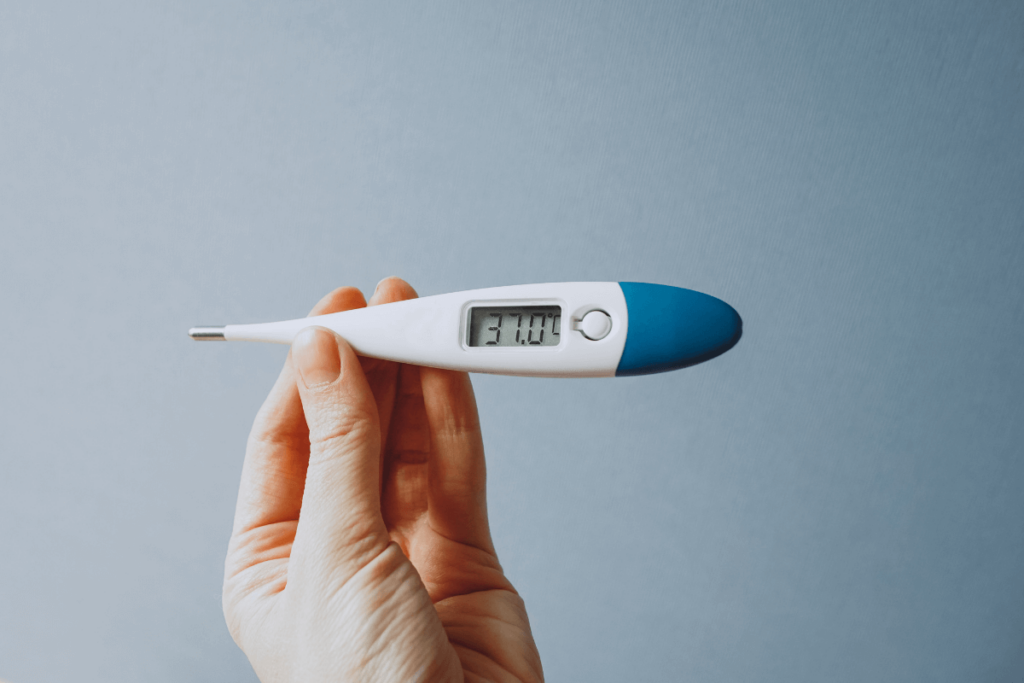Alcohol use can lead to a range of physical and psychological problems. Does this include a symptom that’s commonly associated with cold and flu season? Can you get a fever after drinking alcohol?
Are you or a loved one struggling with addiction? Our team is available now to answer your questions, discuss treatment options, and verify your insurance. Take the first step toward healing—call us today to get started.
Can Alcohol Keep You Warm?
Many people continue to believe the myth that alcohol can keep you warm when you’re outside in cold weather. When you’re exposed to the elements like that, the truth is that alcohol can actually increase your likelihood of hypothermia (dangerously low body temperature).
So, why does it feel like you warm up when you’ve had a drink? Here are a few possible reasons:
- Some types of alcohol create a burning sensation in your throat when you swallow it. This can trick you into thinking that your body is warming up, when in fact it’s just a temporary sensation that’s similar to eating hot wings or other spicy food.
- When alcohol enters your system, it can cause your blood vessels to dilate, or enlarge. This increases the flow of warm blood toward nerve endings near your skin, which makes you feel like you’re warming up. Unfortunately, this effect results in a lower amount of blood around your internal organs, which leads to a drop in body temperature.
- Alcohol can have a disruptive effect on the hypothalamus, which is an area of the brain that is responsible for controlling body temperature.

Can You Get a Fever After Drinking Alcohol?
Since research indicates that alcohol is more likely to lower your blood temperature, not raise it, what does that mean for the possible link between drinking alcohol and getting a fever?
Considering the information in the pervious section, it may surprise you to learn that yes, you can get a fever after drinking alcohol. However, the alcohol is unlikely to be the direct cause of your fever.
Here are a few of the indirect reasons why you might get a fever after drinking:
Dehydration
Alcohol is a diuretic. This means that it promotes increased urination and thus the elimination of a greater amount of water, electrolytes, and salt.
If you drink excessively and don’t adequately replace what you are losing via urination, you can become dehydrated. This, in turn, can make you feel like you are developing a fever.
Impaired immune system
As described in a 2015 article in the journal Alcohol Research: Current Reviews, the negative impact of alcohol abuse includes “disrupt[ing] immune pathways in complex and seemingly paradoxical ways.”
The effects of these disruptions can include:
- Impaired ability to defend against infection
- Increased risk of organ damage associated with alcohol consumption
- Slowed recovery from tissue injuries
When your body’s ability to fight off infections is compromised, that puts you in increased danger of colds, influenza, and other health problems that can cause symptoms such as fever.
Worsened medical conditions
In addition to raising your risk of health concerns that can cause fever, alcohol abuse can also exacerbate the symptoms of conditions you have already been dealing with.
If you’ve been attempting to heal from an infection or inflammation, consuming alcohol can be counterproductive. Instead of allowing your body to heal (either naturally or with medication), alcohol can make your condition worse.
Among other problematic outcomes, this can lead to elevated body temperature, or fever.
Liver damage
This may come close to a direct link between alcohol use and fever, though it can take an extended period to occur. Alcoholic liver disease, which is one of the many life-threatening effects of chronic heavy drinking, occurs in three stages:
- Steatosis: Also referred to as alcoholic fatty liver, this stage involves a buildup of fat within your liver. If you quit drinking while you’re still in this stage of alcoholic liver disease, the fat buildup may be reversible.
- Hepatitis: Experts estimate that about 33% of people who develop steatosis will progress to this stage, which is characterized by the formation of scar tissue in your liver. Some people are able to reverse this type of damage by ending their alcohol use, but for others the harm is irreversible.
- Cirrhosis: This stage involves a hardening of the liver and permanent functional harm. Quitting drinking at this stage may be able to prevent the damage from getting worse, but it will not be able to reverse what has already occurred. Once the damage has progressed to a certain point, the only treatment option is a liver transplant.
Fever can be a symptom of both alcoholic hepatitis and cirrhosis.
Lifestyle factors
Chronic alcohol abuse is associated with a variety of other unhealthy habits and practices, including:
- Poor nutrition
- Lack of exercise
- Poor sleep quality
- Reluctance to seek medical treatment
Each of these can raise your risk of infections and other health problems that can cause fever.

How Can You Avoid Fever After Drinking Alcohol?
The two best ways to avoid problems such as fever after drinking alcohol are:
- Limit your alcohol intake to infrequent, moderate use
- Don’t drink alcohol at all
If you are unable or unwilling to take either of these steps, you may have developed alcohol use disorder, which is the clinical term for alcoholism. If you continue to drink even after experiencing some type of physical or psychological damage as a result of your alcohol use, that may be an even stronger indicator that you have become addicted.
One glimmer of good news about alcoholism is that it is a treatable condition. When you receive comprehensive, personalized care from a reputable treatment provider, you can end your alcohol use and begin to live a healthier life in recovery.
The moment you quit drinking, you reduce your risk of further damage. While you are in treatment, you can begin to heal from the physical, psychological, and social effects that you have already experienced.
When you are trapped in the darkness of compulsive alcohol use, it can feel like there is no hope of escape. Please know that this is not true. Help is available, treatment works, and your path to a more hopeful future may be much closer than you realize.
Find Treatment for Alcohol Addiction in Georgia
Serenity Grove offers a full continuum of customized services for adults who have become addicted to alcohol and other substances. We also provide dual diagnosis programming for patients who have been affected by anxiety, depression, PTSD, and other co-occurring mental health concerns.
Treatment options at our rehab in Athens, GA, include medical detoxification (detox), residential care, and multiple outpatient programs. Our team will work closely with you to identify the programs and services that best align with your unique needs, goals, and expectations.
To learn more about how we can help you or a loved one, or to schedule a free addiction assessment, please visit our Admissions page or call us today.


